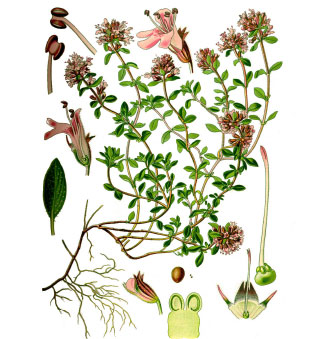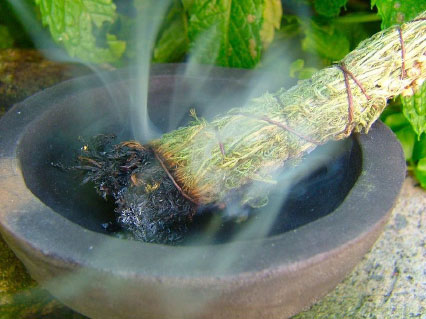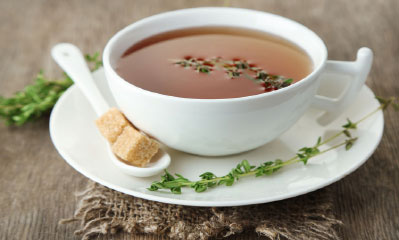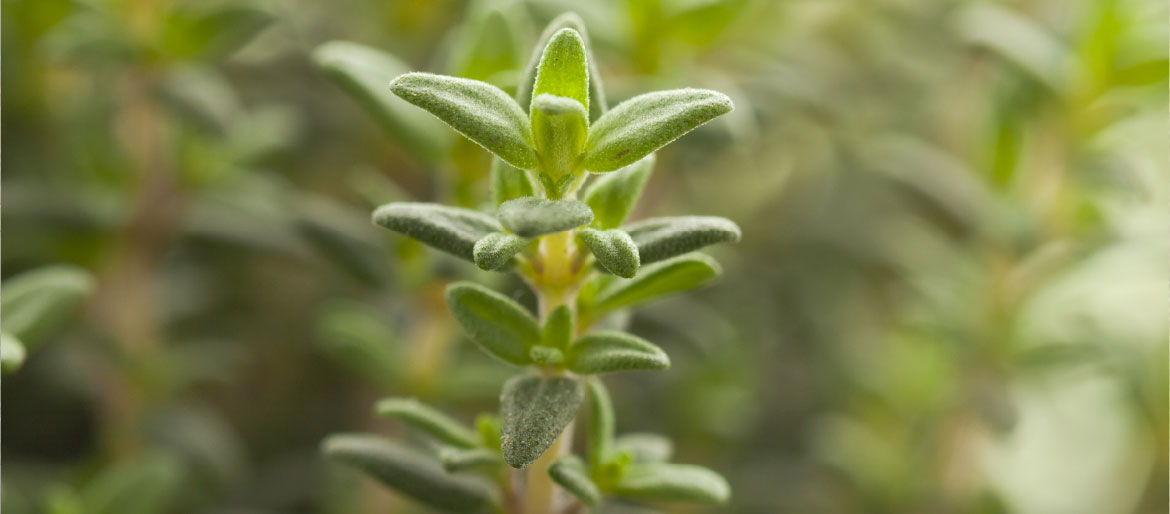Thyme (Thymus vulgaris)
Thyme ordinary-shrub, common in the Northern Mediterranean region, is widely cultivated. Thyme grass contains essential oil, rich in thymol, carvacrol, cymol, providing a pronounced antimicrobial and fungicidal activity of the plant. Also, the plant is rich in triterpene and phenolic compounds.

This is Interesting:
The ancient Greeks dedicated thyme to the goddess Aphrodite and fumigated temples in her honor with thyme twigs. Timian incense ascended to the sky, symbolizing the acceptance of sacrifice by the gods. It is interesting that fumigation of premises with thyme pairs was practiced at a later time and not with cult, but with preventive purposes: to prevent plague, consumption, cough and even... to stop the binge. In the Middle ages it was believed that thyme inspires courage and bravery in the heart, so this plant is often depicted on the coats of arms of knights.

How is it Used in Medicine:
Infusion, decoction and liquid thyme extract is prescribed as an expectorant for acute and chronic respiratory diseases, tuberculosis, whooping cough and bronchial asthma.




